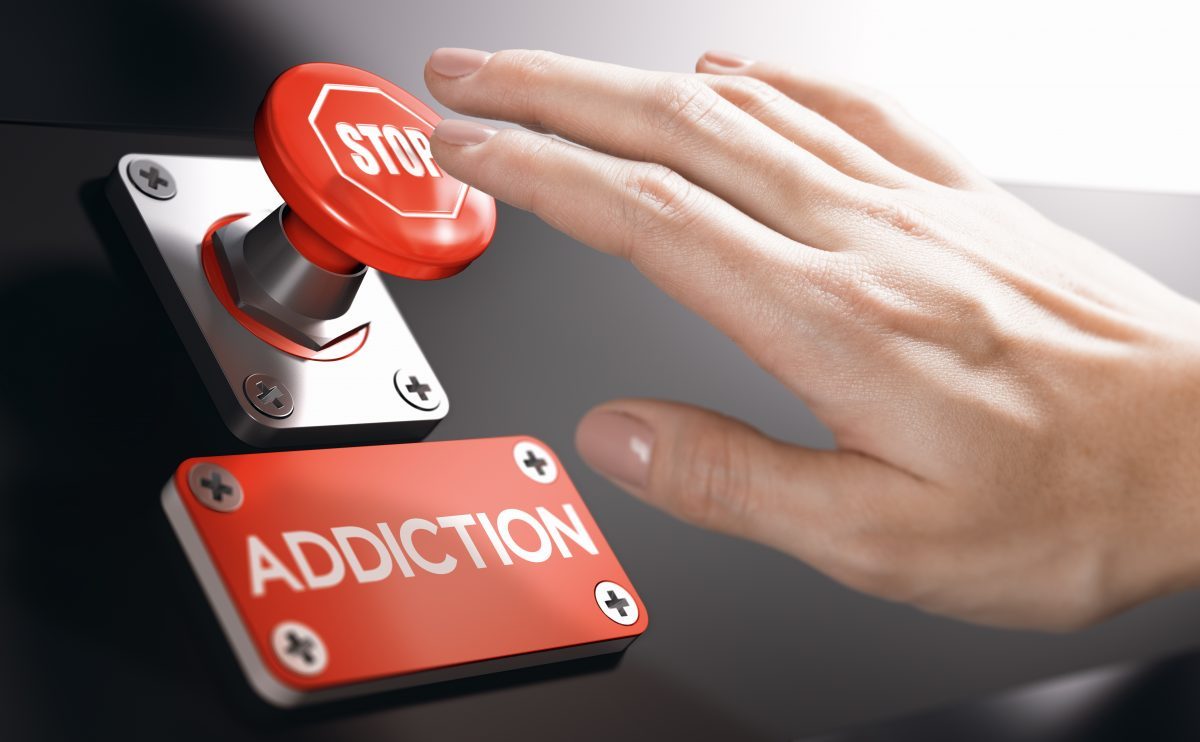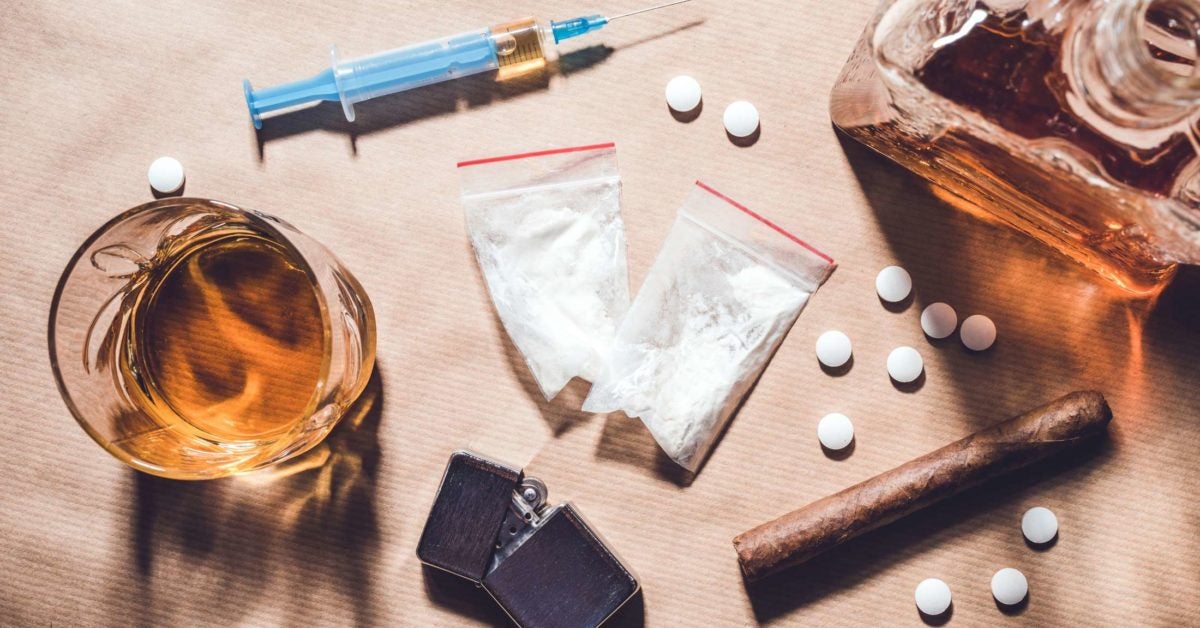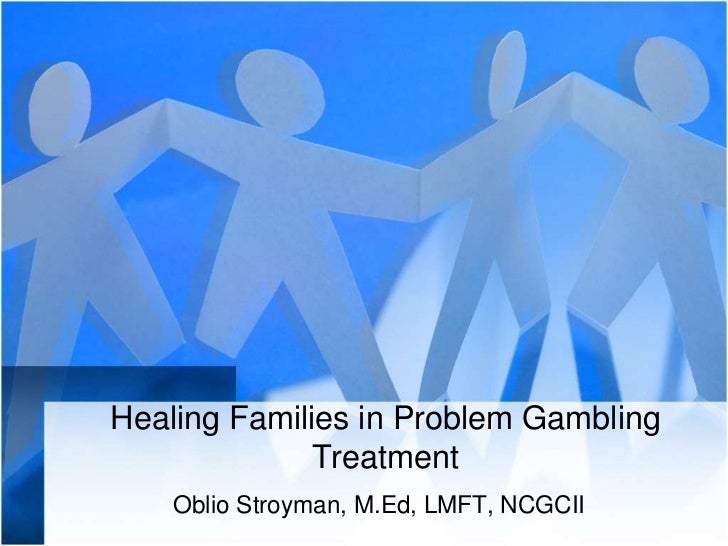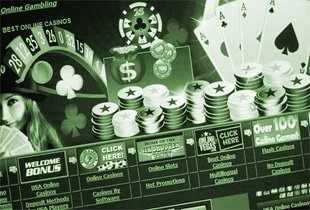Gambling Treatment
If you or a loved one struggle with a gambling problem, there is hope. Whether you cannot seem to stop casino gambling in Atlantic City or betting on fantasy sports from the comfort of your home, treatment and support are readily available. The Council on Compulsive Gambling of New Jersey (CCGNJ) has helped countless people recover from disordered gambling since its inception. Project Turnabout specializes in treating co-occurring disorders. Each person is seen by a Licensed Mental Health Professional when they enter treatment. Our multidisciplinary team of Clinical Care Professionals work with our patients focusing on their gambling addiction while addressing their mental health care needs.
Medically reviewed:06/22/2018
Last updated: 04/17/2020
Author: Addictions.com Medical Review
Reading Time: 7minutes
What is Gambling Addiction?
Gambling addiction or gambling disorder is defined as persistent and recurring problematic gambling behavior that causes distress and impairs your overall livelihood. Gambling addiction affects roughly 0.2% to 0.3% of the general U.S. population, and tends to affects males more than females, though this gender gap has narrowed in recent years. Gambling disorder is a behavioral addiction that can be effectively treated using a range of cognitive and behavioral therapies.
Table of Contents
The desire to buy scratch tickets, play slot machines, and visit casinos aren’t necessarily signs of gambling addiction. But when the desire to gamble becomes overwhelming to the point you can’t stop thinking about it until you gamble on something, may be a sign you need help. Those who suffer from gambling addiction will continue to gamble despite negative financial, legal, and social consequences.
Gambling disorder is a brain disease that can cause you to do things you wouldn’t normally do if you weren’t suffering from addiction. Behavioral addictions like gambling disorder are often difficult to manage and control without getting professional help. Addiction treatment centers can help you overcome gambling addiction and teach you important skills aimed at helping you repair problems in your life caused by your disorder.
What are the Signs and Symptoms of Gambling Addiction?
There are no physical health symptoms associated with gambling disorder. Familiarizing yourself with common gambling addiction behaviors can clue you into whether you or a loved one may need professional help.
Chasing after losses is the most common tell-tale sign of gambling disorder. This particular symptom is marked by the urgent need to continue gambling to earn back a loss or series of losses. Individuals diagnosed with gambling disorder may abandon their usual gambling strategies to win back all losses at once and may lie to family, friends, and therapists to hide the severity of their addiction.
The following behaviors are potential signs of gambling addiction:
- Needing to gamble using increasing amounts of money to achieve the desired rush and excitement.
- Feeling restless or irritable when trying to reduce or stop gambling.
- Inability to control, reduce, or quit gambling despite numerous repeated attempts.
- Preoccupation with gambling, such as devising ways to get more gambling money and reliving past gambling experiences.
- Gambling when experiencing feelings of distress, helplessness, guilt, anxiety, and depression.
- Chasing after your losses to get even after losing money gambling.
- Lying to conceal the severity of gambling behaviors, and the addiction.
- Loss of personal relationships, job, and educational pursuits due to gambling.
- Replying on others to provide money to resolve financial situations caused by gambling, such as a threat of eviction from the home.
Those with a mild gambling addiction may exhibit between four and five of these behaviors, while those with a moderately severe gambling addiction may exhibit six to seven of these behaviors. People who suffer from severe gambling addiction will usually exhibit all nine behaviors. Moderate to severe cases of gambling disorder tend to be more common than mild cases.
You might have a gambling problem if:
- You feel compelled to keep gambling until you’ve spent your last dollar. You may keep bidding until you’ve spent everything to win your money back, or you continue increasing bet amounts.
- You hide your gambling from friends or family members. You may sneak off to gamble without telling anyone, or lie about your gambling activities.
- You spend money you don’t have on gambling. You may use money intended for important bills like rent, mortgage, car payments, credit card bills, and other expenses for gambling.
- You steal from others or sell your possessions so you can gamble. You may steal money or belongings from others so you can gamble, or sell or pawn valuable possessions like musical instruments and vehicles to obtain more gambling money.
- You prioritize gambling over obligations related to work, school, family. You may stop going to work or school so you can gamble, or stop buying household necessities so you can use the money for gambling instead.
- You’re experiencing financial hardships due to gambling. You may have lost your home, car, job, and important personal possessions due to gambling.
- You’re facing a range of negative emotions triggered by gambling. Gambling may be a serious problem in your life if it’s triggering depression, anxiety, frustration, agitation, and remorse.
- You want to stop gambling but can’t. You have tried to stop gambling but can’t seem to stop despite your desire to do better and to stop gambling.
Negative Effects of Gambling Addiction
Gambling addiction can produce many more negative effects than just financial hardship. Gambling disorder can affect your physical health, mental health, and social functioning, and lead to the loss of important relationships with friends and loved ones. You may also suffer a decline in work or school performance, and feel more restless and bored with all other areas of life that don’t involve gambling.
Those who suffer from gambling addiction tend to suffer from higher rates of poor general health than those who don’t gamble. Tachycardia and angina are common health problems among those diagnosed with gambling addiction. Many who suffer from gambling disorder also tend to experience distortions in thinking surrounding their addiction, such as superstitions, overconfidence, and a sense of power over the outcome of chance events. Nearly 50% of those receiving treatment for gambling disorder experience suicidal ideation, while an estimated 17% have tried to commit suicide.
The negative effects of problem gambling include:
- Financial problems including high debt, poverty, or bankruptcy
- Domestic violence and child abuse in families
- Suicidal thoughts, attempts, or the act of suicide
- Legal troubles, including arrests for theft or prostitution
- Behavior problems in children of problem gamblers
- Depression, anxiety, and other mental health disorders
- Loss of relationships with friends and family
- A decline in performance at work or school
- Suicide and death
- A risk for drug or alcohol abuse
How Does Gambling Addiction Interact with Addiction?
Alcohol and cocaine are the two most common substances associated with gambling and binge gambling, respectively. Alcohol is legally available in most gambling settings such as bars and casinos and is often rewarded to gamblers for free at many of these establishments. Roughly 44% of people with gambling disorder in the U.S. also suffer from an alcohol use disorder.

Binge gambling is defined as intermittent episodes of uncontrolled gambling after long periods of abstinence. For instance, a person who practices binge gambling may only visit the casino five times per year but gamble non-stop for long periods during their stay. Cocaine use tends to be common among these gamblers since it produces stimulating effects of increased energy, alertness, focus, concentration, and confidence.
Individuals with gambling disorders tend to suffer higher rates of co-occurring alcohol and drug use disorders compared to their peers. Gambling often takes place in environments that enable and encourage alcohol and drug use. Gambling can also trigger mental health conditions like anxiety and depression, which many may self-treat using alcohol and drugs like marijuana, painkillers, and other addictive substances.
How Are Gambling Addiction and Substance Use Treated?
Gambling addiction is commonly treated using cognitive and behavioral therapies that treat the root psychological causes of your addiction. These therapies also help you identify and change negative, unhealthy thoughts and behaviors that may have led to your gambling addiction. Treatments for gambling addiction can be tailored especially for you or your loved one based on the factors surrounding your disorder.
Gambling addiction can also be treated using community reinforcement, group therapy, and 12-step support groups like Gamblers Anonymous. These treatments help you identify your triggers that can lead to gambling and teach you ways to overcome and manage those triggers. For instance, if a stressful day at work usually makes you feel like gambling, you may learn yoga, deep breathing, or other healthy methods that relieve stress without putting your health and well-being at risk.
Gambling Addiction Help
If you or someone you love needs treatment for gambling addiction, it’s important that you use a treatment approach that best suits your recovery needs. Gambling addiction treatment is available in many different settings, including inpatient and outpatient treatment settings.
Inpatient gambling addiction treatment can greatly benefit those who suffer from severe gambling disorder, and who have suffered severe financial, legal, or social problems. Inpatient treatment includes around-the-clock supervision in a hospital-like setting where you can live for the duration of your treatment program. The intense level of therapy, counseling, and supervision provided by inpatient treatment centers can help significantly reduce the risk of relapse while in recovery.
Compulsive gamblers often need support from friends, family members, and peers to help them stop gambling. Gamblers Anonymous groups can provide peer and social support for those in recovery or for those who wish they can stop gambling. These groups can provide a solid, healthy foundation for a successful and long-term recovery from gambling addiction.
Here’s how to help a family member or loved one suffering from a gambling addiction:
- Understand the addiction. The first thing you can do to help a loved one who is addicted to gambling is to learn all you can about the addiction. Find a support group that can help you cope with the stress that comes from having a loved one who is addicted to gambling.
- Find support. Support for yourself and for your loved one who is addicted can be very beneficial in helping with a gambling addiction. Many support groups are available throughout communities and in treatment centers. Therapists and counselors can also provide support for gambling addiction.
- Manage money tightly. If your loved one is addicted to gambling and is actively pursuing help, take over managing all financial responsibilities for your loved one. This can help reduce any gambling impulses your loved one may be experiencing throughout their recovery.
Are you looking for an effective gambling addiction treatment plan?
You are already thinking about quiting, which means you have taken the first step towards recovery. Realizing that gambling problem can destroy your life is the wakeup call you needed.
Breaking the gambling habit is not easy. You might have already tried a few treatment plans that didn’t work for you. It is understandable to feel dejected but you shouldn’t lose hope.
The most effective addiction treatment is the 12-step plan developed by the AA program. This treatment plan is used by various groups including gambling anonymous with slight variations to eliminate gambling addiction.
This 12-step plan is based on the notion that learning from others and hearing their stories can help you in your addiction recovery process.
Contents
1. Submission
According to the principles of the AA addiction treatment plan, you have to first admit that you are powerless over gambling, that your life has become unmanageable.
The first thing towards successful treatment for gambling disorder is admitting you have a problem and realizing the power that addiction has on you. Realizing your powerlessness in front of your addiction can ensure a successful recovery.
Without understanding your loss of control and power, all other steps might be in vain. This will be the most difficult one as coming to terms with the fact that you have lost control is not easy for anyone.
Understanding and accepting this fact would initiate your journey of fighting off this addiction for good.
2. Believing in the Higher Power
The second principle is to believe that a higher power can restore you to sanity. This is when you reach out for help, to find that tiny shred of hope left in you that you can be helped.
After admitting your powerlessness, you might be feeling hopeless and wondering can your gambling addiction be cured or not. This step will help you find that hope again. Attending a support group is the best way of finding this hope.
When you see others who were once hopeless like you, but are now successfully on their way to recovery, you will start believing in your recovery process.
You will believe that the higher power has not forsaken you but is guiding you towards the right path.
3. Making the Decision
If you want to seek help for gambling addiction, no matter what treatment plan you follow, you have to make a firm decision of quitting your addiction in order to make it work.
Therefore, the third principle of this treatment plan is to make that decision, to turn your will and life to the care of God. This step emphasizes the faith you have to put in the higher power.
You have to realize that your faith and willingness to become committed to the higher power can enhance your hope and encourage you towards the next steps of the recovery process.
4. Moral Inventory
The fourth principle states that you fearlessly conduct a moral inventory of yourself in order to benefit from the gambling treatment plan.
Coming to terms with the things you might have done to your loved ones due to your addiction will not be easy. You have to take a hard look at yourself and the acts you have committed.
Be prepared to experience numerous emotions as you evaluate your life, which might make you want to stop. But remember, you must be fearless and rigorous in this step.
5. Confessing
Next step is admitting to the higher power, yourself, and to other individuals about your wrongs.
The most common characteristic of an addict is the sense of isolation. You might have felt disconnected from the people around you because of your addiction. Sharing your issues with others is the best way to recover from your isolation.
Whether you confess it to the higher power, your loved ones, a support group, or use a gambling addiction hotline to share your problems, it is important that you actually do it.
This will help you emerge from your isolation where typically the addictions always thrive. Having someone to share your vulnerabilities with will create a safe and positive environment for you to recover.
6. The Change
Gambling Treatment Diversion Court
Now you should be prepared to let the higher power eliminate these character defects. You might already be witnessing some changes in your emotional and mental state. The urge to gamble might be becoming less.
This may make you feel like you don’t need to go ahead with the rest of the step. However, it is important to move on to reduce the possibility of a relapse and ensure that you quit this addiction forever.
Those negative feelings and thoughts are sure to resurface soon enough to threaten your recovery journey. Therefore, focus on the successful changes you made and on the changes you have to make.
There are numerous addiction centers that offer free rehab for gambling, that can help you in making these changes. Remember, the biggest change would be the change of heart that will ensure you stay on this recovery journey.
7. Adapting Humility
The next step in this treatment for gambling addiction is to humbly ask the higher power to eliminate your shortcomings.

A humble heart will make you have belief in the power of the higher power. You must remind yourself that you were powerless against your addictions and yet you are gradually gaining the control back on your life.
This realization will give you more hope and faith in the higher power and the fact that your shortcomings would be removed gradually.
8. Asking Forgiveness
The next step requires you to create a list of all individuals you had harmed and make amends.
This is a chance to clean up the mess you made due to addiction and allow you to rebuild your relationships. When you adapt humility, you will also realize the harm your actions have caused others.
Start creating that list and determine ways to make amends to all of them, no matter how hard it might seem.
However, avoid rushing yourself. Talk to your support group to determine the best way of doing it so that you have a better plan of action.
9. Reconciliation
Now that you have the list of people you harmed, it is time to talk to them directly, admit your mistakes in a way that would not injure or harm them further.
You would need good judgment, prudence, and the right timing to make successful reconciliation. Remember, this step will once again test your humility and would require further help and guidance from the higher power and your support group.
This will be challenging. Make sure you are not careless or impulsive when making these amends. This is the point where you would be most vulnerable to relapse because of the fear of facing the people you had hurt.
It is normal to be fearful but resist the temptation of giving up. You have already accomplished so much, be courageous and began repairing your relationships.
10. Being Accountable
Next comes being accountable by continuously making the personal inventory to determine when you were wrong and admitting it.

In this step, you need to take accountability for your actions that created havoc in the lives of others due to your gambling addiction. As you continue to evaluate yourself, you will realize there are still some negative feelings.
Take this inventory every day, plan your day to ensure you do better than you did yesterday, analyze your motives. Questioning your moves will help in seeking balance, and to eliminate those negative feelings.
Many gambling addiction treatment centers refer to this inventory as a time-out session where you examine what you did and why, determine ways of further improvements to aid your recovery journey.
Gambling Treatment Centers
11. Making a Commitment
This step is about using meditation and prayer to determine the will of the higher power and making a commitment to carry it out.
You will now notice that your anger, resentment, frustration, confusion and self-pity have drastically decreased. It is time to make a lifelong commitment towards this continuous journey and to make a constant effort of improving yourself.
Many gambling addiction treatment services offer different programs to help you adapt a healthier lifestyle, and discover fulfillment, peace, joy and hope through the activities you stopped doing due to addiction.
Keep surrounding yourself with people who support you and love you to strengthen this commitment of moving forward with good intentions.
12. Sharing and Servicing

The last step is to carry on this message to other gambling addicts as a form of service after experiencing the spiritual awakening of this gambling addiction treatment plan.

The best way to avoid relapse is to spread this light to those that need it the most. This will not just help others but also ensure you stay on the right path after going through this rigorous recovery process.
Helping at a gambling rehab allows you to spread the message of hope to gambling addicts that are seeking the same help you were when you began this journey.
This will serve as a constant reminder to you about your struggle and why you can’t go back to your old ways. Your conviction will strengthen further as you light the path of others and save them from the darkness.